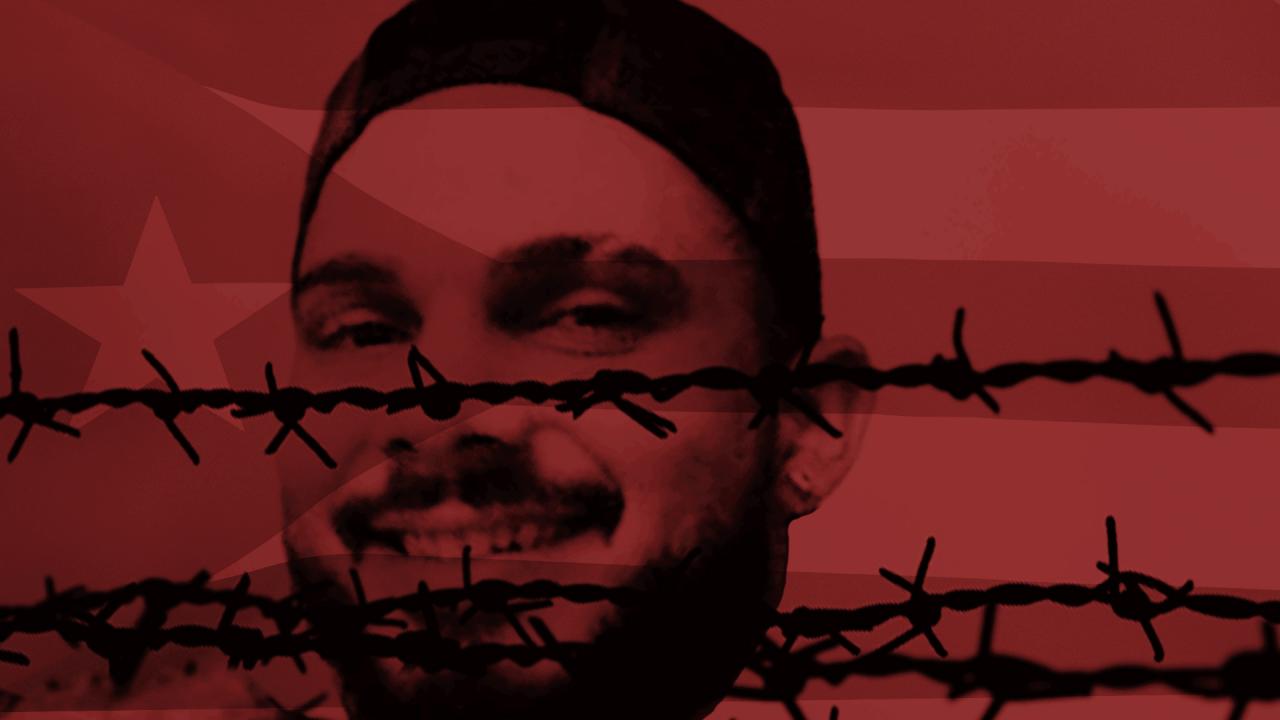Last January, DIARIO DE CUBA published an analysis of the humanitarian parole program to travel to the United States, which showed how it could represent a small escape route for Cuban political prisoners; among them, those imprisoned by the anti-government for the 11-J protests. Ailex Marcano, mother of political prisoner Angel Jesús Veliz Marcano, took measures so that her son, sentenced to six years in prison for participating in the demonstrations, could leave the country in this way.
"The parole was thanks to a friend of mine who′s like my sister and has been living in the United States for 30 years. She was approved as a sponsor. My son had to complete another part of the process, and for that he needed to connect to the Internet," the prisoner's mother told DIARIO DE CUBA.
Ailex Marcano asked the prison to grant her son access to the Internet. When she received no response, she turned to the Citizen Assistance Department at the Ministry of the Interior (MININT), where they told her that, as a prisoner, her son had no right to use the Internet.
When she filed a suit in the municipality of Florida, with the Provincial Court of Camagüey, in search of a solution to the conflict, the answer, recorded in an unnumbered decision, was that it was solely up to the Directorate of Prisons to facilitate or deny access to the Internet.
"We ran out of time and my son lost the parole," says Marcano.
Was DIARIO DE CUBA wrong to assert that the parole program offered a possibility for 11-J prisoners to leave the island?
"The conclusion that parole could be used by the regime to release political prisoners was not flawed. The system negotiates and decides who gets out and who doesn't. It may be that other prisoners, even political ones, are given the possibility of accessing the Internet, though Angel Jesus was not. It may be because Ailex Marcano is a very active person on social media. She has denounced the Cuban Government at the UN, at the IACHR (Inter-American Commission on Human Rights), and has been very vocal against the system. So, as an element of punishment, it could be that the regime says 'we're only going to reward, to release, to deport, those people who don't do us as much harm; and you, for doing this, this and this, you're not going to leave. You're going to serve the full six years behind bars,″ explained former Cuban judge Edel González Jiménez.
"This case must be the first in which an inmate asked to access the Internet. In Cuba, prisoners have no need to access the Internet because they don't have to do any paperwork. The parole program requires one to access a restricted page and complete an online form. The law is constantly evolving. The Penal Enforcement Act states that prisoners have the right to carry out bureaucratic processes. How do they do so? In person, when they have to go to an office; or online."
"Ailex Marcano was not given any written response denying that right. Unofficially, she has been told that prisoners do not have the right to access the Internet. Normally, they give one a written answer and, based on that, one can file an appeal in court. That right must be facilitated by the penitentiary system. The courts only intervene when the penitentiary system denies the right, hinders it, or does not respond, as in this case," says González Jiménez.
Lawyer Yaxys Cires, head of strategy at the Cuban Human Rights Observatory (OCDH), points out that Ángel Jesús Véliz Marcano's case "is one of the paradigmatic ones involving an exhaustion of domestic legal resources, and also of the clear existence of a practical via for a political prisoner to leave the country, based on his and his family's will."
"What happens is that the Cuban regime, aware of the existence of this route, which would allow this political prisoner's departure, and that Cuban laws do allow that alternative, opted for retribution, to not allow the departure of young Angel Jesús Véliz Marcano; among other things, because they are playing the card that prisoners, as always, can be the object of exchanges for economic or political privileges, and for their image at the international level."
"He, like most political prisoners, is a victim of the regime's intransigence and the fear of other mass demonstrations such as those of 11-J, on the one hand; and, on the other, of its political machinations, in which it always uses political prisoners, especially when they want to negotiate or when they want to improve their positions at the international level, or their bilateral relationship with any country.
The regime has repeatedly offered Unión Patriótica de Cuba (UNPACU) leader José Daniel Ferrer the option of being released in exchange for his deportation. The same offer has been extended to artists like Luis Manuel Otero Alcántara and Maikel "Osorbo" Castillo. In January of 2022 independent activist and journalist Esteban Rodríguez was transferred directly from jail to the airport after being imprisoned for eight months for demonstrating on the Calle Obispo in April of 2021.
Why is the Cuban regime trying to get some political prisoners to leave, while preventing others from doing so?
There are cases in which the regime has insisted that they leave the country, as the only alternative to immediately get out of prison, as is the case of José Daniel Ferrer, who has said that he chooses to remain in Cuba, which is why they have kept him in prison. But in these cases important and recognized political leadership is involved, and they are part of the regime's repressive strategy to rid the country of any opposition and civil society activists. It's a profile that does not necessarily match that of most 11-J protesters," concluded the OCDH's strategy director.
